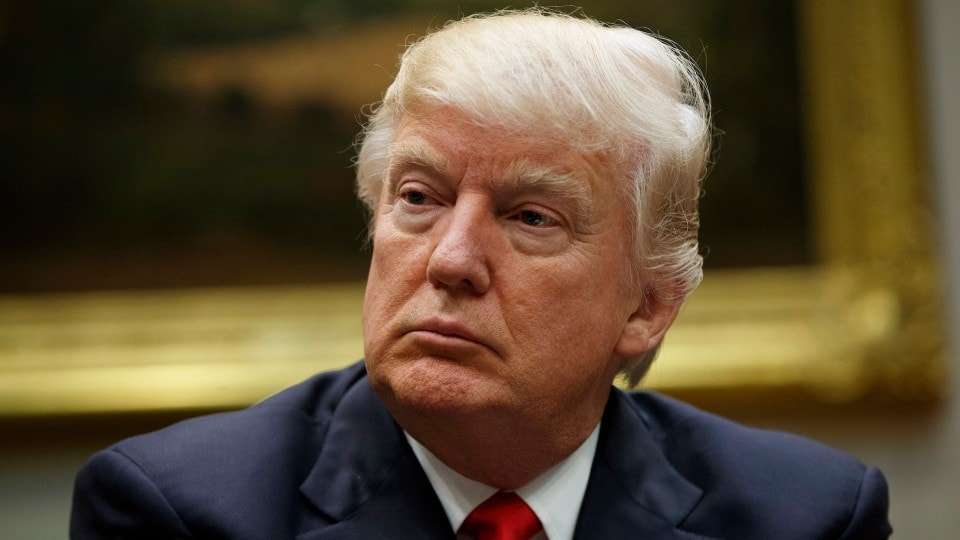The Volokh Conspiracy
Mostly law professors | Sometimes contrarian | Often libertarian | Always independent
Fake News: Giuliani admitted that Trump's executive order on immigration is a "Muslim ban"

I've seen so many headlines to this effect and so many people on social media assert this as a fact, I believed it be true - until I actually went back and looked into the source of this claim, an interview Rudy Giuliani did with Fox News. Typically, the Hill headlined its article on the interview, "Giuliani: Trump asked me how to do a Muslim ban 'legally.'" Other news outlets, including The Post, ran similar headlines.
The Hill relates the story as well as anyone: "I'll tell you the whole history of it: When he first announced it, he said 'Muslim ban,'" Giuliani said on Fox News. "He called me up, he said, 'Put a commission together, show me the right way to do it legally.'"
Everything turns on what the final "it" means. The headline writers all seem to have decided that "it" referred to "banning Muslims." The other possible meaning is, "Show me the right way to "go about protecting Americans from foreign jihadists entering the United States."
The latter explanation is consistent with what Giuliani said thereafter; the former is not:
"And what we did was we focused on, instead of religion, danger," Giuliani said.
"The areas of the world that create danger for us, which is a factual basis, not a religious basis. Perfectly legal, perfectly sensible."
Giuliani reiterated that the ban is "not based on religion."
"It's based on places where there are substantial evidence that people are sending terrorists into our country," he said.
So, no, Giuliani did not say that President Trump asked him how to do a Muslim ban legally, but how to exclude jihadists without banning Muslims generally. And in fact, both of Trump's executive orders (temporarily) exclude people from countries whose Muslim populations make up less than 10 percent of the world's Muslim population.
This is not a commentary on the wisdom of the executive orders, which I find to be both over-inclusive in excluding people who are no threat to the United States, and under-inclusive in that they fail to cover countries such as Pakistan and Saudi Arabia that are home to many radical Islamists. But the idea that Giuiliani "admitted" that the executive orders were "really" a Muslim ban relies on what is at best a tendentious interpretation of his interview.
UPDATE: Thanks to a reader, I found the original video from Fox News. Giuliani is using way too many pronouns to be clear, but this video not only doesn't do anything to change my interpretation, but the subsequent dialogue reinforces it. The very next question to Giuliani is why the order doesn't include Pakistan and Saudi Arabia, and he discusses the Saudi case in some detail. Why would Giuliani first claim that he cleverly helped the president implement a "Muslim ban," but then acknowledge that two overwhelmingly Muslim countries, with a combined population of over 200 million people (more than the total population of the countries included in the executive order) aren't part of the purported "ban?"
FURTHER UPDATE: Josh Blackman also addressed Giuliani's statement in the context of fact-checking a district court opinion on the executive order. I take it Josh agrees with me:
Our fact-checking inquiry next takes us to former-Mayor Rudolph Giuliani. On Sunday, January 29, 2017, he was interviewed on the Fox News Channel about the two-day-old executive order. The Aziz court offered this excerpt:
'I'll tell you the whole history of it[.]'… 'So when [Trump] first announced it, he said 'Muslim ban.' He called me up. He said, 'Put a commission together. Show me the right way to do it legally.'… 'And what we did was, we focused on, instead of religion, danger-the areas of the world that create danger for us[.]'… 'Which is a factual basis, not a religious basis. Perfectly legal, perfectly sensible. And that's what the ban is based on. It's not based on religion. It's based on places where there are [sic] substantial evidence that people are sending terrorists into our country.'
From this, Judge Brinkema concludes that "Giuliani said two days after the EO was signed that Trump's desire for a Muslim ban was the impetus for this policy." The use of the phrase "impetus" here is unclear. Giuliani's remarks establish that a "Muslim Ban" was not lawful, but it was lawful to deny entry to aliens from "areas of the world that create danger for us." The policy was "not based on religion." To use Trump's parlance, these are the dangerous "territories."
Judge Brinkema's ellipses also omitted who worked on the policy. Giuliani said, "I put a commission together with Judge [and former Attorney General] Mukasey, with Congressman [and Chairman of the Homeland Security Committee] McCaul, [Representative and former Chair of the Homeland Security Committee] Pete King, whole group of other very expert lawyers on this. Judge Brinkema discounts these experts' opinion, because "there is no evidence that this commission was privy to any national security information when developing the policy." (How could she possibly say that about the Chair of the Homeland Security Committee?!). But in any event, this inquiry moves the goal posts. If she thought Giuliani was in fact enabling a secret-Muslim ban, then that would be true, too, of former-Attorney General Mukasey. The court's uncharitable reading of both Trump and Giuliani is better served for a Sunday morning talk show, not a federal court.
ONE MORE UPDATE: Neo-neocon blogged similar thoughts in Feburary.


Show Comments (0)